第72章 XXIV(1)
The coming months, though full of degradation and anxiety, were to bring him nothing so terrible as that night. It was the crisis of this agony. He was an outcast and a failure. But he was not again forced to contemplate these facts so clearly. Varden left in the morning, carrying the fatal letter with him. The whole house was relieved. The good angel was with the boys again, or else (as Herbert preferred to think) they had learnt a lesson, and were more humane in consequence. At all events, the disastrous term concluded quietly.
In the Christmas holidays the two masters made an abortive attempt to visit Italy, and at Easter there was talk of a cruise in the Aegean. Herbert actually went, and enjoyed Athens and Delphi. The Elliots paid a few visits together in England. They returned to Sawston about ten days before school opened, to find that Widdrington was again stopping with the Jacksons.
Intercourse was painful, for the two families were scarcely on speaking terms; nor did the triumphant scaffoldings of the new boarding-house make things easier. (The party of progress had carried the day.) Widdrington was by nature touchy, but on this occasion he refused to take offence, and often dropped in to see them. His manner was friendly but critical. They agreed he was a nuisance. Then Agnes left, very abruptly, to see Mrs. Failing, and while she was away Rickie had a little stealthy intercourse.
Her absence, convenient as it was, puzzled him. Mrs. Silt, half goose, half stormy-petrel, had recently paid a flying visit to Cadover, and thence had flown, without an invitation, to Sawston.
Generally she was not a welcome guest. On this occasion Agnes had welcomed her, and--so Rickie thought--had made her promise not to tell him something that she knew. The ladies had talked mysteriously. "Mr. Silt would be one with you there," said Mrs.
Silt. Could there be any connection between the two visits?
Agnes's letters told him nothing: they never did. She was too clumsy or too cautious to express herself on paper. A drive to Stonehenge; an anthem in the Cathedral; Aunt Emily's love. And when he met her at Waterloo he learnt nothing (if there was anything to learn) from her face.
"How did you enjoy yourself?"
"Thoroughly."
"Were you and she alone?"
"Sometimes. Sometimes other people."
"Will Uncle Tony's Essays be published?"
Here she was more communicative. The book was at last in proof.
Aunt Emily had written a charming introduction; but she was so idle, she never finished things off.
They got into an omnibus for the Army and Navy Stores: she wanted to do some shopping before going down to Sawston.
"Did you read any of the Essays?"
"Every one. Delightful. Couldn't put them down. Now and then he spoilt them by statistics--but you should read his descriptions of Nature. He agrees with you: says the hills and trees are alive! Aunt Emily called you his spiritual heir, which I thought nice of her. We both so lamented that you have stopped writing."She quoted fragments of the Essays as they went up in the Stores' lift.
"What else did you talk about?"
"I've told you all my news. Now for yours. Let's have tea first."They sat down in the corridor amid ladies in every stage of fatigue--haggard ladies, scarlet ladies, ladies with parcels that twisted from every finger like joints of meat. Gentlemen were scarcer, but all were of the sub-fashionable type, to which Rickie himself now belonged.
"I haven't done anything," he said feebly. "Ate, read, been rude to tradespeople, talked to Widdrington. Herbert arrived this morning. He has brought a most beautiful photograph of the Parthenon.""Mr. Widdrington?"
"Yes."
"What did you talk about?"
She might have heard every word. It was only the feeling of pleasure that he wished to conceal. Even when we love people, we desire to keep some corner secret from them, however small: it is a human right: it is personality. She began to cross-question him, but they were interrupted. A young lady at an adjacent table suddenly rose and cried, "Yes, it is you. I thought so from your walk." It was Maud Ansell.
"Oh, do come and join us!" he cried. "Let me introduce my wife."Maud bowed quite stiffly, but Agnes, taking it for ill-breeding, was not offended.
"Then I will come!" she continued in shrill, pleasant tones, adroitly poising her tea things on either hand, and transferring them to the Elliots' table. "Why haven't you ever come to us, pray?""I think you didn't ask me!"